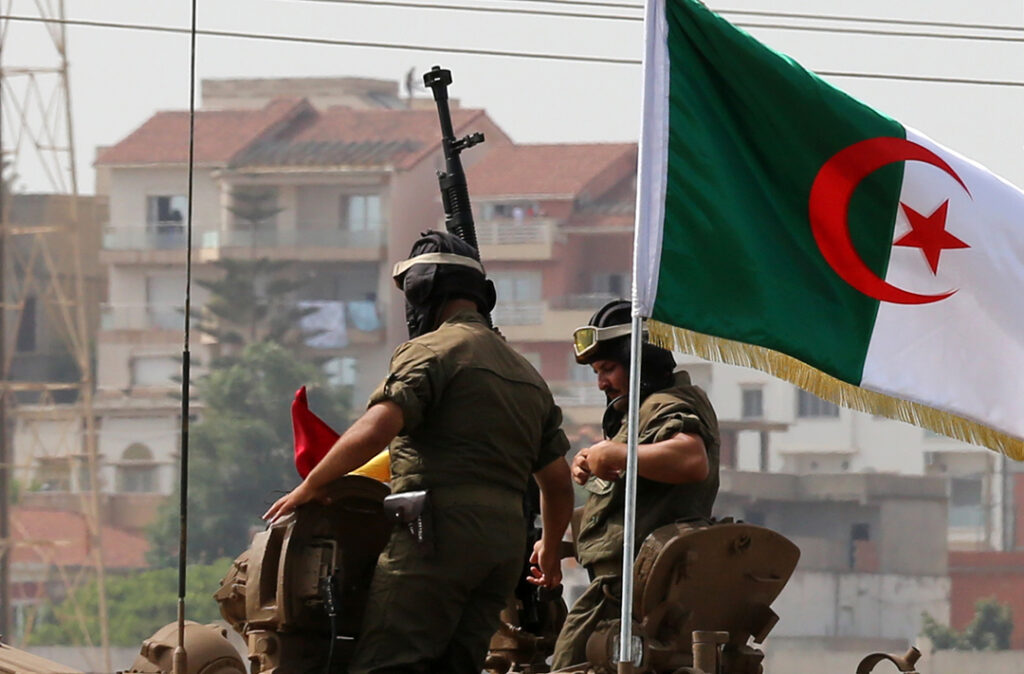ADF STAFF
Stuck in a holding pattern since Mali’s 2022 withdrawal, the G5 Sahel gathered the foreign ministers of its four remaining member nations in the Chadian capital of N’Djamena on January 18 to discuss how to fortify and sustain the joint counterterrorism force.
The group, made up of Burkina Faso, Chad, Mauritania and Niger, indicated after the summit that it has a “burning desire for the sister Republic of Mali to rejoin the natural family that is the G5 Sahel.”
Security experts say the G5 Sahel should also look to Algeria.
“Even with Mali, the G5 Sahel cannot validly deal with terrorism without Algeria,” independent Niger-based analyst Abdoul Mooumouni Abass told Deutsche Welle.
“[Algeria] is another fairly significant weight that must be integrated today into the dynamics of the fight against terrorism in the Sahel.”
Political scientist Kamissa Camara touted the potential benefits of Algerian involvement in the Sahel. She believes the country offers valuable insights and lessons learned from countering terrorist organizations.
During its 10-year civil war that ended in 2002, Algeria defeated militant Islamist groups, including one that later resurfaced in Mali as al-Qaida in the Islamic Maghreb.
Camara, who was chief of staff to former Malian President Ibrahim Boubacar Keïta, is an expert on sub-Saharan African policy who founded the Sahel Strategy Forum.
“Algeria’s regional diplomatic clout, military might, and experience in fighting terrorism could help Sahelian states ward off an imminent political and security collapse,” she wrote for the Middle East Institute in December 2022.
With its porous and sparsely populated border regions, the Sahel would benefit from involving all of its neighboring countries to effectively combat the aggressive expansion of terror groups.
Algeria shares borders spanning nearly 3,000 kilometers with Mali, Mauritania and Niger.
Camara believes a collaboration between Algeria and the Sahel nations would be mutually beneficial, as Algeria’s security is tied to that of the Sahel — politically, demographically and geographically.
“Algeria’s southern border is at risk,” she wrote. “The country should act soon.”
In any security interaction with Sahel nations, Algeria comes with a track record and reputation as a regional leader in conflict resolution.
It facilitated negotiations that led to the 2015 Algiers Peace Accord between Mali and secessionist rebel groups that had grown violent over the preceding three years.
It created an intelligence data exchange called the UFL in which Algeria, Burkina Faso, Chad, Libya, Mali, Mauritania, Niger and Nigeria share information.
Algerian Ambassador to Burkina Faso Mohamed Ainseur said the UFL guarantees “independent analysis of security intelligence in the Sahel.”
The Sahel’s largest neighbor to the north also has succeeded in countering extremist ideology in its mosques, schools and media. More recently, Algeria exported its knowledge of the de-radicalization process to the Sahel.
It created the League of Ulemas, Preachers and Imams of the Sahel (LOPIS), which is described in the region as a sort of traveling university that supports the training of imams and preachers and seeks to calm ideological discourse.
“The rejection of the other is a cause of very great problems in the history of the Umma [religious community],” Algeria’s LOPIS representative Dr. Lakhmissi Bezzaz said during a workshop.
“The dialogue will yield tangible results, which will contribute to the establishment of peace and stability in our countries.”
Rather than entice Algeria to join the G5 Sahel, another possibility would see the G5 replaced with an existing coalition in the Algeria-led joint military operations center called CEMOC, which also includes Mauritania, Mali and Niger.
Envisioning the CEMOC as a way to consolidate the concerns of the Sahel and the Maghreb nations, Camara argued that it “could generate the type of broader global response that Sahelian states have been waiting for.”
“CEMOC’s unique advantage had always been institutionalized security cooperation between Algeria and the Sahel,” she wrote.
“This integrated security cooperation now has to become a reality.”

